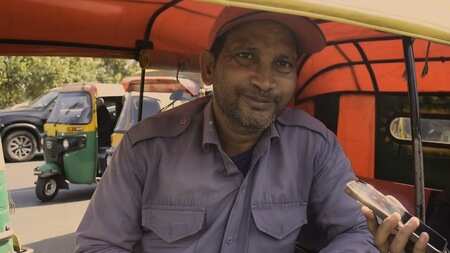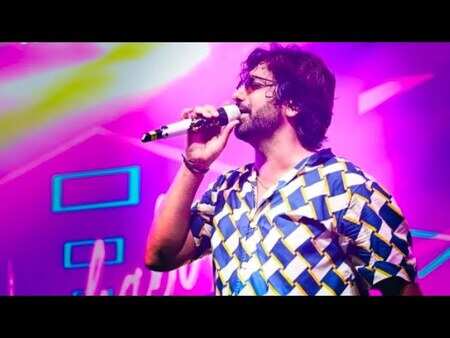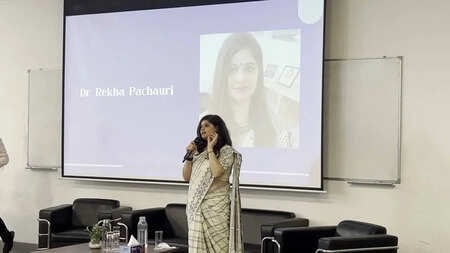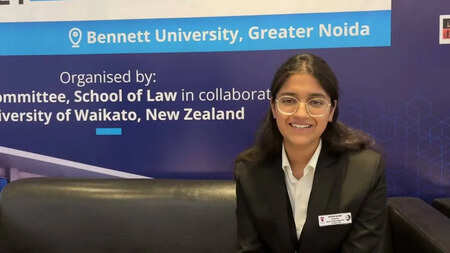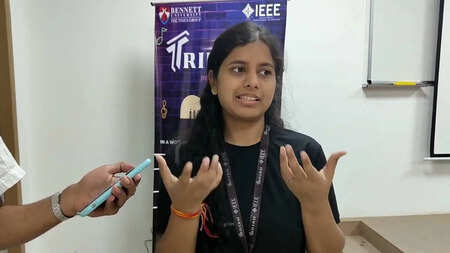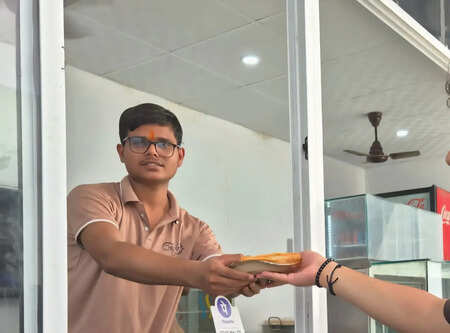The gunshot that flabbergasted American politics
Times of Bennett | Updated: Sep 19, 2025 11:46

A brief analysis of Charlie Kirk ’s assassination case and his political career
Correspondent: Vignesh Iyer
One bullet, one victim, one suspect and an entire nation in shock. September 10th, Utah Valley University; a crowd of 3000 people primarily comprising of college students witnessed a horrific incident that has raised eyebrows of theRepublican party and has sparked debates in the entire American political landscape. Influential right-wing activist and public figure, Charlie Kirk succumbed to a fatal bullet wound on his neck. It was fired at 12.23pm from the rooftop of the Losee Centre approximately 130m away from his location. He was pronounced dead at 2.40pm in a nearby hospital. The suspected assassin is a young man named Tyler Robinson . Details emerging from court filings, including DNA evidence on the rifle and disturbing text messages, underscored the planned nature of the act. Allegedly, he targeted Kirk for his far-right political views. This assassination has led to nation-wide concerns about the escalating political polarization and violence in the United States . The Republican Party is grieving the loss of a prominent figure whilst facing serious arguments from the opposition parties and the press. President Trump announced that Kirk would be posthumously awarded the Presidential Medal of Freedom. Conservative figures of America rallied in condemnation, framing the killing as an alarming escalation in the war over American values.

Charlie Kirk’s journey had begun well before national headlines and campus rallies. He was born in 1993, in suburban Arlington Heights, Illinois where he was raised by a family of moderate Republicans. His father was a well-regarded architect, his mother a former trader and later counsellor. Kirk’s fire for politics was ignited by the writings of free-market economist Milton Friedman when he was in middle school. By the time he reached high school, Kirk was already volunteering on campaigns and organizing student demonstrations, soon drawing attention towards his sharp critiques on perceived liberal bias in the American education system. He couldn’t get in the United States Military Academy, West Point. So, he briefly attended the Harper College but left after one semester to pursue activism, which then turned out to be his true calling. In 2012, at a remarkably young age of 18, Kirk met Tea Party candidate Bill Montgomery and together they foundedTurning Point USA . What started as a shoestring operation quickly blossomed, and became a conservative powerhouse specializing in youthful outreach and controversial “prove me wrong” debates all under Kirk’s leadership.

His political vision sharpened as he became a known name in American campus activism, faith-based rallying, and alternative education initiatives. His views often invited heated public battles over inclusivity, LGBTQ+ rights, and the very definition of American values. Kirk authored several books and hosted podcasts and radio shows that further cemented his place in the conservative movement and made him a dynamic media presence. His visible and evident support to the MAGA slogan made him a blue-eyed boy for Donald Trump, J.D. Vance and other influential Republican politicians and conservative idealists. But Kirk’s journey wasn’t all rosy all along. In recent years, he had to face the brunt of fierce critique and opposition as he gradually steered his views towards hardline social conservatism, especially on issues of religion, race, and gender. Even before his assassination, Kirk’s public appearances drew protest and controversy. His legacy now sits at the crossroads of bitter political conflict. His life work poses the enduring question of how America’s next leaders will choose to engage with one another, and with ideas that may or may not divide the nation
(This article is written by Vignesh Iyer, a Master’s student of Mass Communication. He is passionate about journalism and aspires to become the editor of a leading news agency in India)
Correspondent: Vignesh Iyer
One bullet, one victim, one suspect and an entire nation in shock. September 10th, Utah Valley University; a crowd of 3000 people primarily comprising of college students witnessed a horrific incident that has raised eyebrows of the

Charlie Kirk’s journey had begun well before national headlines and campus rallies. He was born in 1993, in suburban Arlington Heights, Illinois where he was raised by a family of moderate Republicans. His father was a well-regarded architect, his mother a former trader and later counsellor. Kirk’s fire for politics was ignited by the writings of free-market economist Milton Friedman when he was in middle school. By the time he reached high school, Kirk was already volunteering on campaigns and organizing student demonstrations, soon drawing attention towards his sharp critiques on perceived liberal bias in the American education system. He couldn’t get in the United States Military Academy, West Point. So, he briefly attended the Harper College but left after one semester to pursue activism, which then turned out to be his true calling. In 2012, at a remarkably young age of 18, Kirk met Tea Party candidate Bill Montgomery and together they founded

His political vision sharpened as he became a known name in American campus activism, faith-based rallying, and alternative education initiatives. His views often invited heated public battles over inclusivity, LGBTQ+ rights, and the very definition of American values. Kirk authored several books and hosted podcasts and radio shows that further cemented his place in the conservative movement and made him a dynamic media presence. His visible and evident support to the MAGA slogan made him a blue-eyed boy for Donald Trump, J.D. Vance and other influential Republican politicians and conservative idealists. But Kirk’s journey wasn’t all rosy all along. In recent years, he had to face the brunt of fierce critique and opposition as he gradually steered his views towards hardline social conservatism, especially on issues of religion, race, and gender. Even before his assassination, Kirk’s public appearances drew protest and controversy. His legacy now sits at the crossroads of bitter political conflict. His life work poses the enduring question of how America’s next leaders will choose to engage with one another, and with ideas that may or may not divide the nation
(This article is written by Vignesh Iyer, a Master’s student of Mass Communication. He is passionate about journalism and aspires to become the editor of a leading news agency in India)


